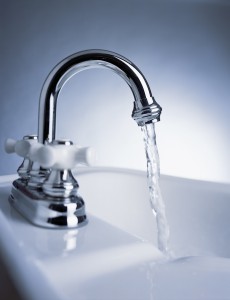Every drop really does matter
July 25, 2016As you probably know, part of LCA’s motto is “every drop matters,” but have you ever thought about what that really means?
As Dr. Kathryn Sullivan, Administrator for the National Oceanic and Atmospheric Administration recently pointed out, “You may think every drop of rain falling from the sky, or each glass of water you drink, is brand new, but it has always been here, and is a part of the water cycle.”
That means each and every drop of water used must somehow make it back into our water cycle. We have a finite amount of water on this earth, despite the fact that most of our planet — about 71 percent — is made up of good old H20.
Now, take into consideration that it’s not all freshwater: 96.5 percent of the world’s water is contained wit hin our oceans and, in its current form, is undrinkable. That means just 3.5 percent of that water is considered fresh water.
hin our oceans and, in its current form, is undrinkable. That means just 3.5 percent of that water is considered fresh water.
Here’s something else to consider: not all of that fresh water is potable, because a fair amount of it is polluted. Of the clean, drinkable water left over, some is unreachable, because it’s deep underground or otherwise inaccessible. And some of the earth’s water is also in the air around us, in the form of vapor.
As of March 2016, the world’s population reached a record high of 7.4 billion people. That doesn’t leave us with a lot of water to go around, especially when you consider that we share the planet with plants and animals that also need water to survive.
Scientists at NOAA are taking a hard look at the nation’s water supply, via a project called the National Water Model, and also through projects at NOAA’s new National Water Center on the University of Alabama campus in Tuscaloosa. The idea, Sullivan writes, is to help “people and governments better understand their water situation and take advantage of every drop.”
Which brings us back to the portion of our motto we mentioned earlier: “every drop matters.”
Be sure to visit NOOAA’s site for updates on the projects and to learn more about the water cycle we all depend on.
While you’re at it, do your part to help conserve water and keep it clean. Take shorter showers, fix leaks, install water-saving devices like low-flow toilets, and properly dispose of chemicals and medications so as not to pollute the water supply.
Remember, we have just a small percentage to work with. It’s in all of our best interests to take care of it.